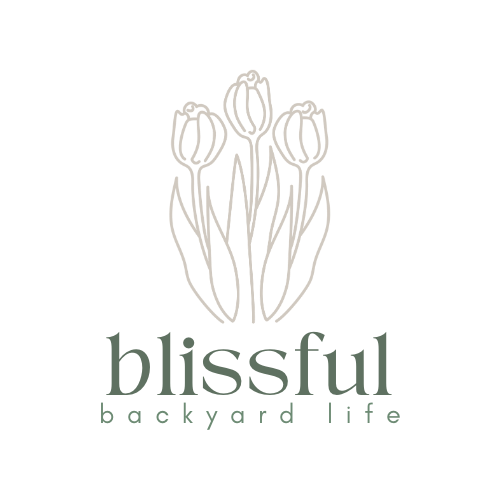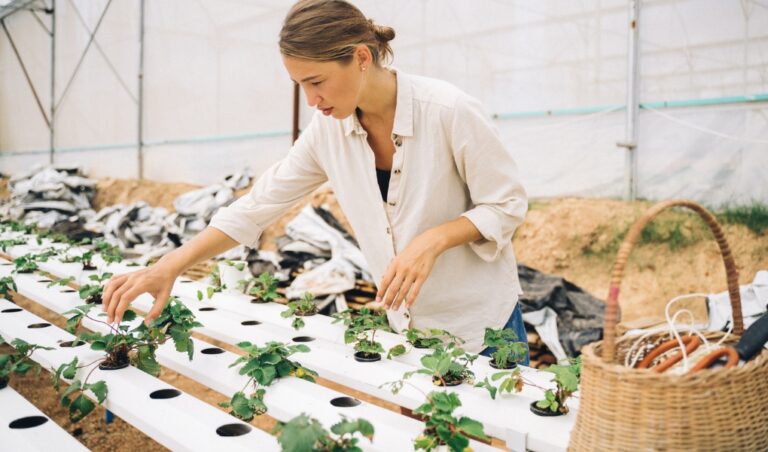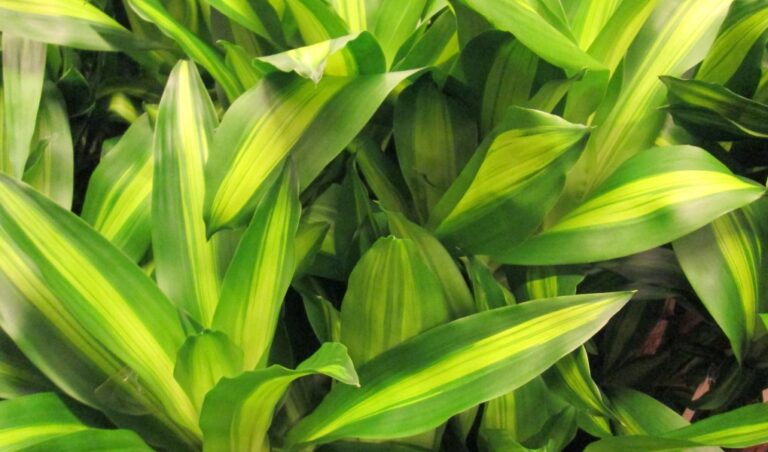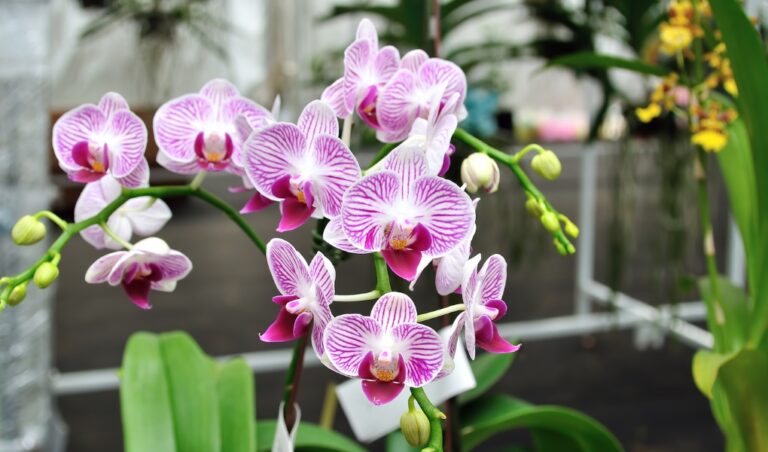Mulch plays a vital role in gardening, conserving soil moisture, preventing weed growth, and enhancing soil fertility. However, dealing with old mulch can be a challenge.
So, what to do with old mulch?
Instead of discarding it and contributing to landfill waste, there are numerous creative ways to repurpose old mulch to benefit your garden and the environment.
What is Mulch?
Mulch is a layer of organic or inorganic material that is spread on top of the soil in gardens, flower beds, and other landscaping areas. It serves a number of important purposes, including:
Retaining moisture: Mulch helps to keep the soil moist by preventing evaporation. This can help to reduce your watering needs, especially during hot, dry weather.
Suppressing weeds: Mulch creates a barrier that prevents weeds from germinating. This can save you time and effort in weeding your garden.
Protecting the soil: Mulch helps to protect the soil from erosion, which can be caused by wind and rain. This can help to keep your soil healthy and productive.
Improving the soil: Mulch can break down over time and add organic matter to the soil. This can improve the drainage, aeration, and fertility of the soil.
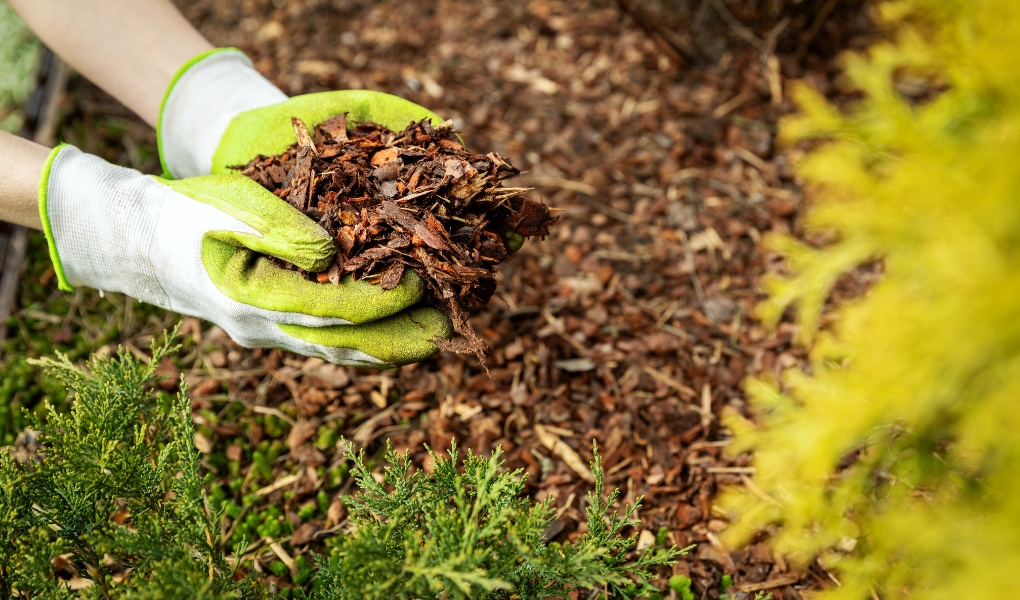
When should you remove old mulch?
Old mulch refers to the organic material that has begun to decompose and deteriorate. It may lose its original color and texture and might develop a musty odor.
Old mulch can start to break down and become less effective over time. It is important to remove old mulch and replace it with new mulch every few years. The frequency with which you need to remove old mulch will depend on the type of mulch you use and the climate you live in.
In addition, sending mulch to landfills contributes to the growing waste problem. Additionally, discarded mulch can release harmful chemicals as it decomposes, impacting soil and surrounding ecosystems negatively.
In general, you should remove old mulch when it starts to break down and become less effective. This is typically every 2-3 years for organic mulches and every 5-10 years for inorganic mulches.
Here are some signs that it is time to remove old mulch:
- The mulch is starting to decompose and look brown or gray.
- The mulch is no longer suppressing weeds.
- The mulch is blocking the air and water from reaching the soil.
Evaluating Old Mulch Quality
Before knowing what to do with old mulch and reusing them, it’s crucial to identify usable and unusable portions. Remove any debris or large pieces that have not broken down. Avoid using mulch that appears moldy or contaminated.
What To Do With Old Mulch?
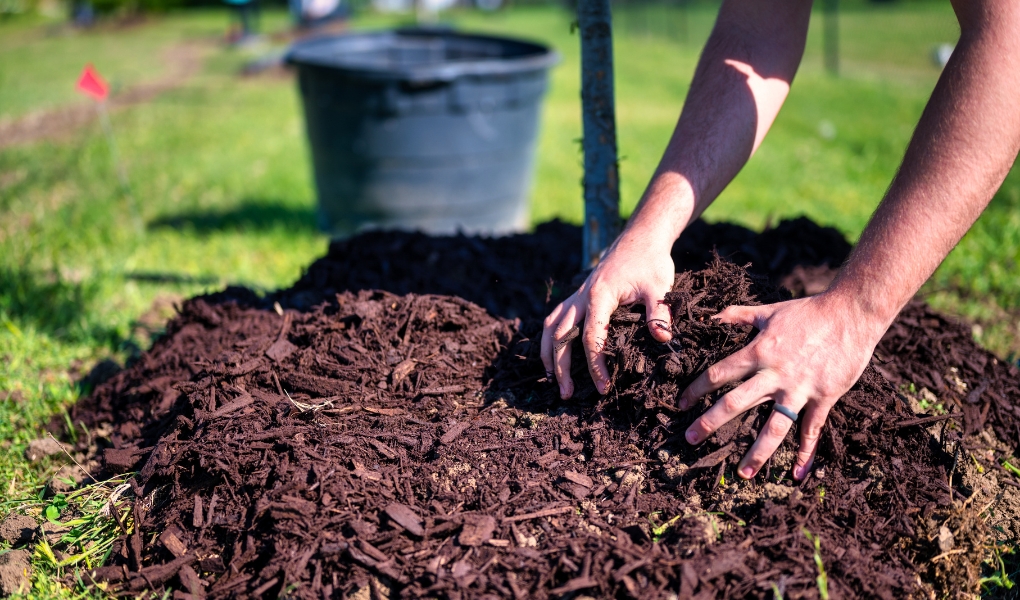
Use Mulch as Compost
Transform old mulch into nutrient-rich compost by creating a compost pile. The composting process breaks down the mulch further, creating valuable organic matter that enhances soil fertility and structure.
Weed Control
Repurpose old mulch as a natural weed barrier. Apply a thick layer of mulch around plants to suppress weed growth and minimize weed competition for nutrients and water. A good rule of thumb is to apply a layer of mulch that is 2-3 inches thick.
Water the mulch regularly to keep it moist and add fresh mulch periodically to keep it effective.
Landscaping
Construct beautiful and functional garden walkways using mulch. Various types of mulch, such as wood chips or gravel, are ideal for creating paths that blend seamlessly into your garden’s design.
You can also use old mulch to enhance the aesthetic value of your garden by using colorful mulch options. Red, brown, or black mulch can add visual appeal to your landscape.
Also Read: Lawn Care Tips For Beginners: Achieve a Lush and Healthy Lawn
Erosion Control
Prevent soil erosion in sloped areas by using old mulch as a protective layer. The mulch will absorb and retain water, reducing the impact of heavy rains on your landscape.
During dry seasons, old mulch can help retain soil moisture. Properly mulched soil stays hydrated for longer periods, reducing the need for frequent watering.
Pest Repellence
Certain types of mulch, like oak leaves, cedar or cypress, naturally repel pests. Use old mulch as a protective barrier around plants to deter pests from laying eggs.
To maximize the pest-repelling effects of mulch, apply it in a thick layer around your plants. Ensure that the mulch covers the entire root zone, creating an effective barrier against pests trying to reach the soil.
Here are some of the most effective mulches for pest control:
- Cedar mulch: Cedar mulch contains natural chemicals that repel insects, making it a good choice for deterring pests such as ants, beetles, and termites.
- Cypress mulch: Cypress mulch can help to suppress slugs and snails, making it a good choice for gardens that are prone to these pests.
- Oak leaves: Oak leaves contain tannins, which can help to deter pests such as aphids and spider mites.
- Pine needles: Pine needles have a sharp, prickly texture that can deter pests such as slugs and snails.
- Wood chips: Wood chips can help to suppress weeds and pests, making them a good choice for gardens that are prone to these problems.
Mix into Gardening Soil
Incorporate old mulch into the soil to improve soil quality and moisture retention. The mulch also acts as a protective layer, shielding plants from both cold and heat stress.
Mulch can break down over time and add organic matter to the soil. This can improve the drainage, aeration, and fertility of the soil to help your plants bloom,
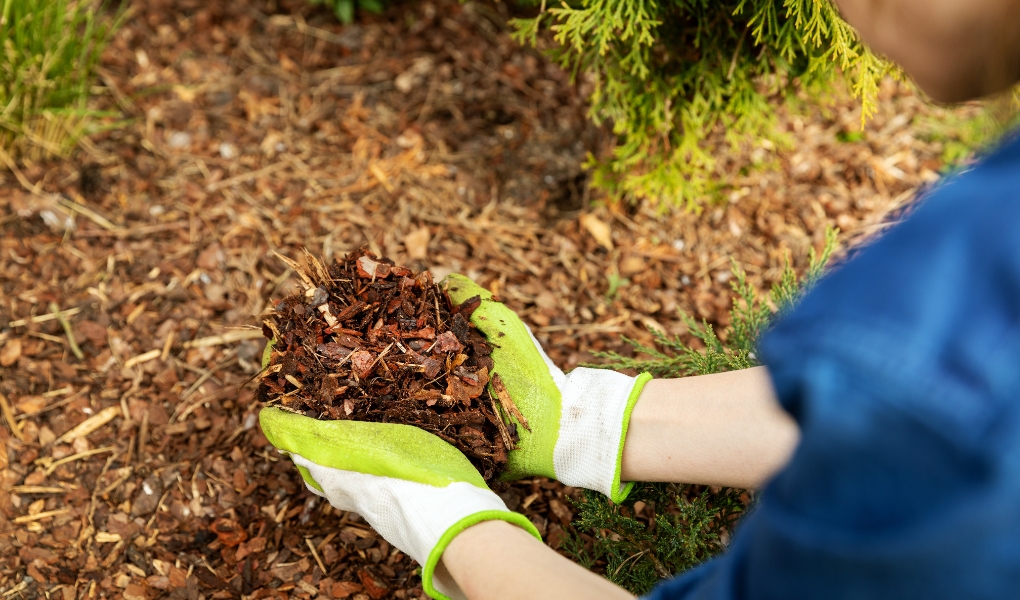
Donating Mulch to Community Gardens
Support local gardening initiatives by donating your excess mulch to community gardens. Help others beautify their surroundings while reducing waste.
Many community gardens are always looking for donations of mulch, as it can be expensive to purchase. If you have any extra mulch, you can contact your local community garden to see if they would be interested in accepting it.
Summary
Reviving your garden with old mulch is not only resourceful but also environmentally friendly. From composting to weed control and decorative ground cover, old mulch has various valuable applications in gardening.
By knowing what to do with old mulch, you also minimize waste, conserve resources, and contribute positively to the environment. It’s a win-win situation for both your garden and the planet.
